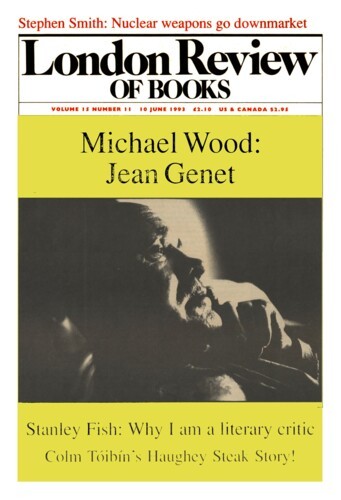Why Literary Criticism is like Virtue
Stanley Fish, 10 June 1993
There is a great difference between trying to figure out what a poem means and trying to figure out which interpretation of a poem will contribute to the toppling of patriarchy or to the war effort. Until recently the assertion of this difference would have been superfluous, but in many circles it has come to be an article of faith that the idea of a distinctively literary system of facts and values is at best an illusion and at worst an imposition by the powers that be of an orthodoxy designed to suppress dissent. It is thought to be an illusion for the reason that both the form and the content of a discourse are not self-generated, but have the shape they do by virtue of relationships (of similarity and difference) with other discourses that are themselves relationally, not essentially, constituted. If literature, under some definitions, occupies (has title to) the realm of the ‘imagination’ it is because other enterprises – law, sociology, chemistry and engineering would be interestingly different candidates – find their self-definition (and their methodologies) in a renunciation (not a negative, but an enabling gesture) of that realm; and each of these enterprises will in turn gain a franchise by pushing away as beside its point responsibilities and concerns that ‘belong’ elsewhere.’

